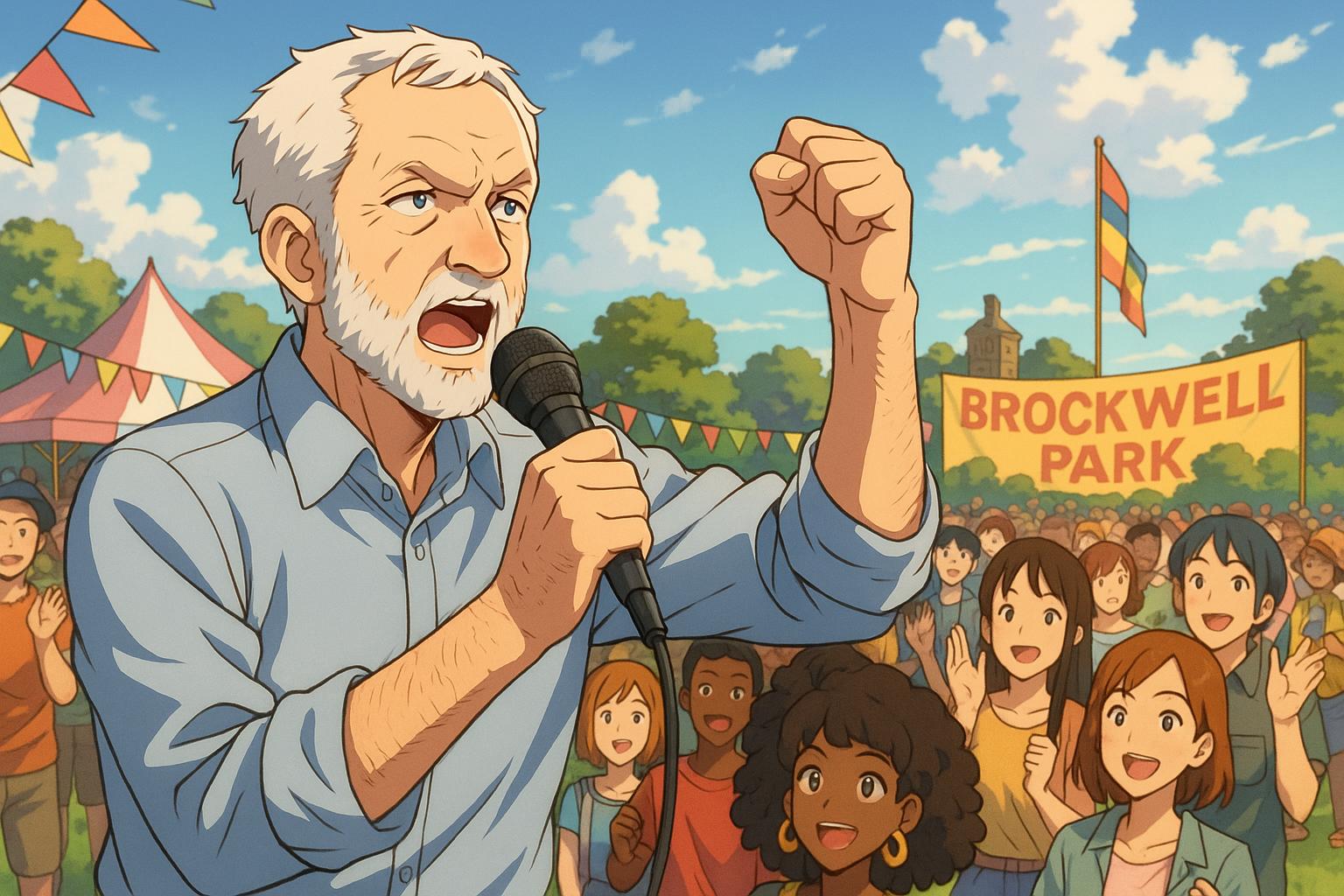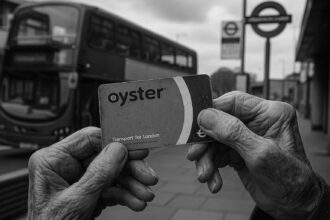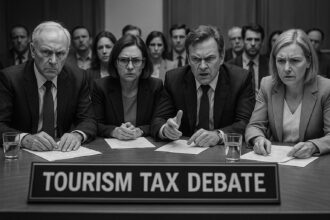At the Wide Awake Festival, Jeremy Corbyn harshly attacked Keir Starmer’s use of ‘island of strangers’ in immigration debates, warning it echoes divisive language from the 1960s. His remarks highlight ongoing tensions over Labour’s approach to inclusivity and social justice.
Jeremy Corbyn’s recent remarks at the Wide Awake Festival in London have ignited fresh controversy surrounding immigration rhetoric within the Labour Party. The former Labour leader, now serving as an independent MP following his loss of party whip, took aim at Sir Keir Starmer’s use of the phrase “island of strangers” during a major speech on immigration reform. Corbyn asserted that such language is reminiscent of Enoch Powell’s incendiary “rivers of blood” speech from 1968, suggesting it promotes division rather than unity.
Speaking to a crowd gathered in Brockwell Park, Corbyn declared, “Let’s hear no more of this nonsense spoken by some about this being a country of strangers… Our community, our strength, our joy, our lives, our hope is our diversity.” His comments underscore a growing frustration among some party members that Starmer’s leadership is backtracking on Labour’s historical commitments to inclusivity and diversity.
In Starmer’s address, he warned that the UK risks becoming an “island of strangers” if immigration and integration efforts are not improved. He linked this to a need for controlled immigration, reflecting an ongoing debate within the party about balancing public concerns over immigration with a progressive agenda. Critics have noted that Starmer’s phrasing draws unsettling parallels to Powell’s notorious rhetoric, with potential implications for the Labour Party’s image among voters who value inclusivity.
Corbyn’s critique doesn’t stop at language. He also used the platform to urge a cessation of British arms sales to Israel, highlighting the moral obligations that come with such transactions. “This country, Britain, has supplied weapons and parts for the F-35 jets that are used to bomb Gaza,” he stated, calling for individuals to support demonstrations for Palestinian rights. His comments signal a broader commitment to social justice issues that he believes should remain at the forefront of Labour’s agenda.
Additionally, Corbyn has suggested that the government should increase taxes on the wealthy, framing it as essential for funding vital public services. He argued that without addressing wealth inequality, the goals of equality and justice are fundamentally compromised. This position reflects a sentiment expressed by various party factions that advocate for a return to a more leftist platform, one that prioritises the needs of the working class over the interests of billionaires.
Despite Corbyn’s impassioned speech, the atmosphere surrounding the Labour Party remains complicated. Following the 2019 general election defeat, Starmer’s leadership has been characterised by a clear attempt to distance the party from its past, including the legacy of Corbyn. Some within the party, notable figures such as David Lammy, have articulated a need to focus on rebuilding trust among the electorate, suggesting that Corbyn represents a bygone era that the party must move away from.
The Wider Awake Festival itself has stirred additional controversy, particularly among local residents who have raised concerns about the impact of these large-scale events on Brockwell Park. A recent High Court ruling indicated that Lambeth Council had acted irrationally in allowing the festivals without a thorough planning process, yet events continue, reflecting a tension between community interests and the vibrancy of cultural activism.
In the backdrop of these discussions, Labour’s future trajectory continues to spark debate. As Corbyn’s criticisms reveal, the struggle over the party’s identity—its stance on immigration, social justice, and historical legacy—remains deeply contentious as it seeks to navigate the complexities of contemporary British politics.
Source: Noah Wire Services
- https://www.irishnews.com/news/uk/jeremy-corbyn-criticises-starmers-island-of-strangers-speech-at-festival-NSL3XCAUPFMF5JJYD2OMDV5DPQ/ – Please view link – unable to able to access data
- https://www.irishnews.com/news/uk/jeremy-corbyn-criticises-starmers-island-of-strangers-speech-at-festival-NSL3XCAUPFMF5JJYD2OMDV5DPQ/ – Jeremy Corbyn criticized Sir Keir Starmer’s use of the phrase ‘island of strangers’ in an immigration announcement. Speaking at the Wide Awake Festival in London, Corbyn emphasized the UK’s strength lies in its diversity and backgrounds, contrasting Starmer’s remarks with Enoch Powell’s 1968 ‘rivers of blood’ speech. Corbyn also called for an end to British arms sales to Israel and suggested higher taxes on the wealthy to fund public services.
- https://www.irishtimes.com/world/uk/2024/06/14/dont-rewrite-history-jeremy-corbyn-warning-to-keir-starmer-after-a-purge-of-his-influence-on-the-labour-party/ – In an interview, Jeremy Corbyn warned Keir Starmer against rewriting history and purging his influence from the Labour Party. Corbyn criticized Starmer’s approach, stating it was unnecessary and unwise. He highlighted the importance of understanding past policies and decisions, emphasizing that dismissing the past does not strengthen the party. Corbyn also discussed his election pledges, including opposition to NHS privatization, housing for all, rent controls, and a wealth tax.
- https://www.johnogroat-journal.co.uk/news/moves-under-way-to-regenerate-thurso-eyesore-108981/ – Jeremy Corbyn criticized Keir Starmer for distancing himself from the past and his own involvement in it. Corbyn emphasized the importance of understanding and acknowledging past policies and decisions, stating that forgetting the past does not make the party stronger. He also discussed the unanimous agreement on the 2019 election manifesto and strategies within the shadow cabinet and National Executive.
- https://en.wikipedia.org/wiki/Restoring_control_over_the_immigration_system – Keir Starmer introduced a white paper on immigration, pledging to ‘take back control of our borders’ and close the chapter on previous immigration policies. He criticized the previous government’s approach, stating that net migration into the UK quadrupled between 2019 and 2023. Starmer’s speech included the phrase ‘we risk becoming an island of strangers,’ which drew criticism for echoing Enoch Powell’s 1968 ‘rivers of blood’ speech. The speech also highlighted the need for controlled immigration to maintain national unity.
- https://news.sky.com/story/labour-conference-jeremy-corbyn-is-the-past-leading-labour-mp-says-ahead-of-keir-starmers-speech-12421058 – Leading Labour MP David Lammy stated that Jeremy Corbyn is ‘the past’ ahead of Keir Starmer’s conference speech. Lammy emphasized that Starmer’s focus should be on rebuilding the party and earning the British people’s trust to win future general elections. He acknowledged Corbyn’s past contributions but highlighted the need for the party to move forward and address current challenges.
- https://en.wikipedia.org/wiki/Political_positions_of_Keir_Starmer – Keir Starmer’s political positions include a commitment to controlled immigration, as reflected in his speech where he stated, ‘we risk becoming an island of strangers.’ This approach has been criticized for echoing Enoch Powell’s 1968 ‘rivers of blood’ speech. Starmer’s use of the phrase ‘take back control’ has also been noted, as it was a slogan used during the 2016 Brexit referendum. Critics argue that Starmer’s stance on immigration may be influenced by political considerations rather than genuine policy beliefs.













